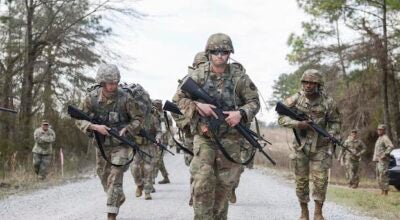Loud explosions near Garyville are tests for oil under ground
Published 12:00 am Wednesday, November 8, 2006
More in St. John to continue until end of year
By CALEB FREY
Staff Reporter
GARYVILLE – Some Garyville residents might not have known what to think this weekend when their houses started literally shaking, but there is nothing to be concerned about, it was just seismic wave tests being conducted to search for oil and natural gas far beneath the surface of St. John Parish.
The actual testing phase of the project is being handled by the company Seitel, Inc., a leading provider of seismic data and related geophysical expertise to the petroleum industry. Seitel Permit Agent Dan Theriot said the project should be finished by the middle of December, and delays could be caused by adverse weather conditions such as rain and heavy wind, but that shouldn’t change the time frame for completion much.
In order to test for oil or natural gas within the ground, seismic activity is measured after charges anywhere from one to eight pounds of plastic explosives are detonated on uninhabited stretches of land throughout the parish, such as swamps or sugar cane fields, according to Theriot.
“To get seismic recordings, you must first get a seismic wave,” Theriot said. “Those waves go 15, 20, sometimes 30,000 feet down into the earth and then back up to the surface where the data is recorded.”
Theriot said the measurements are used by geophysicists to determine what, if anything, is lying beneath the surface. Different patterns found in the recorded data help geophysicists pinpoint exactly where to drill for oil or natural gas. Studies such as this one that detect for elements within the earth’s surface are normally funded by oil companies, especially since they have the most to gain, Theriot said.
Seitel started the testing by using detonated charges by the Vacherie Bridge and will make their way through all of St. John Parish approximately by year’s end. The only area they will not be using plastic explosives for detonation is within the Mississippi River where compressed air detonation is done instead to ensure no fish are killed as a result of the testing.
Theriot said Seitel follows strict guidelines on where they can detonate charges so as not to disturb any nearby wildlife. They must also detonate charges from 300-600 feet away from all residential areas.
Information about the seismic testing has been running continuously on cable access channel 15 and twice hourly on FM station 101.9. For more information visit Seitel on the web at www.seitel-inc.com or by phone at 832-295-8300.




